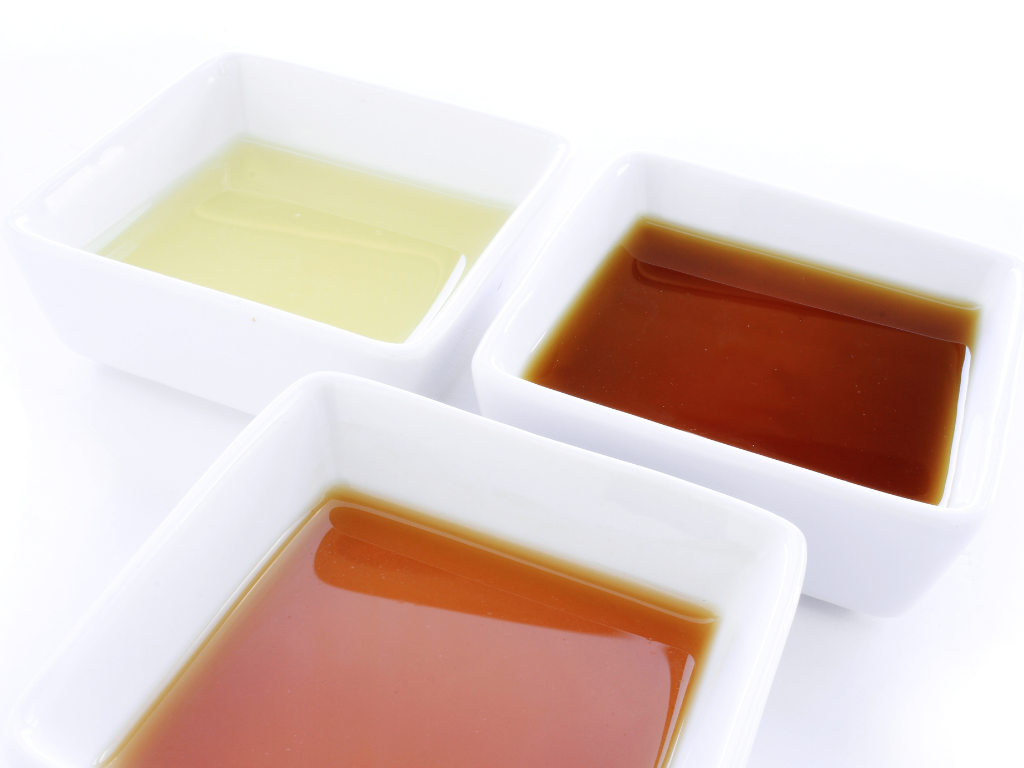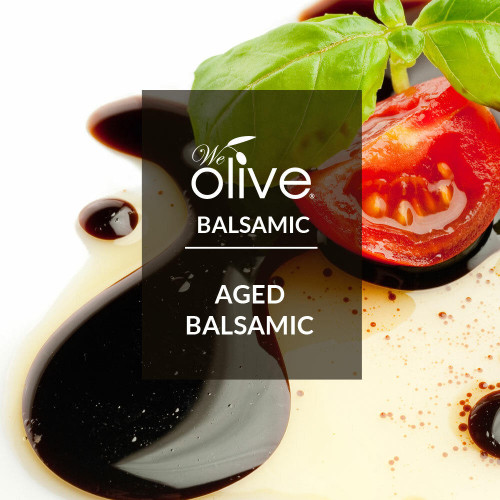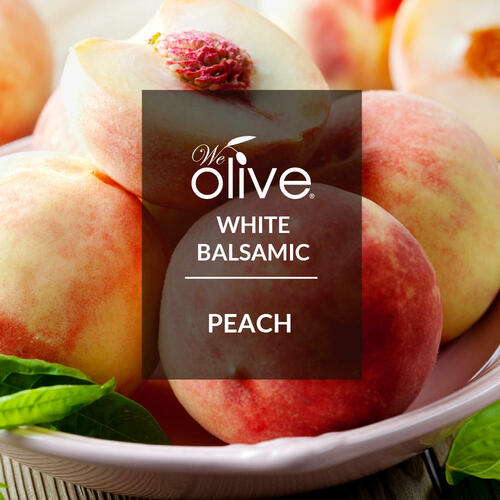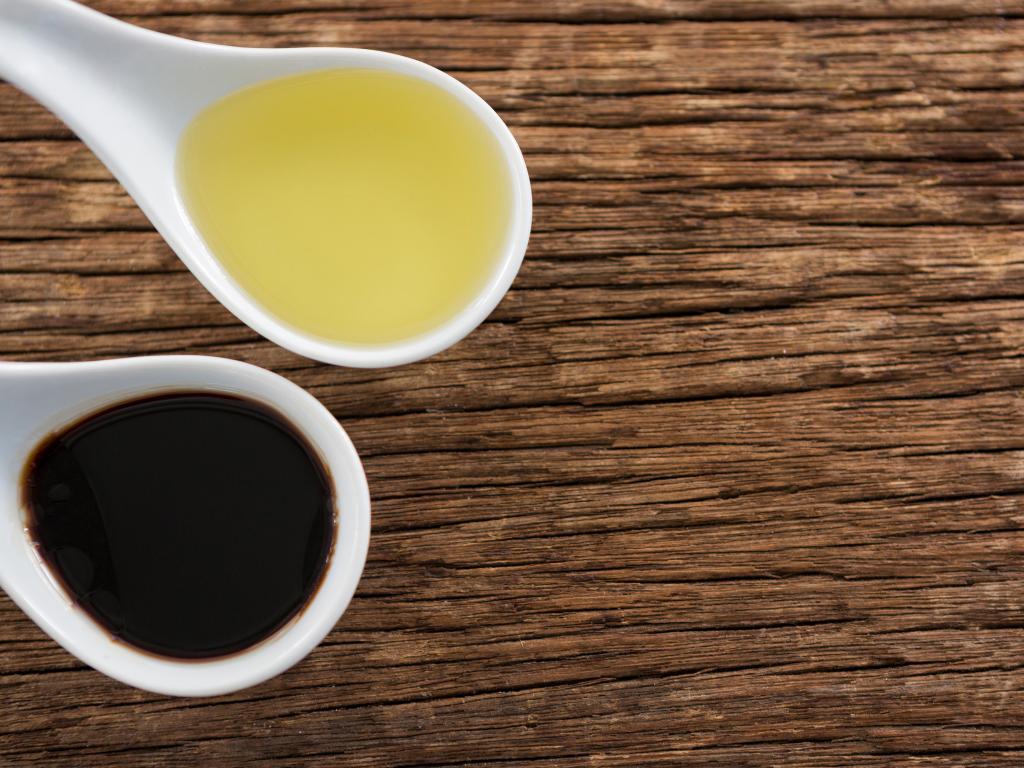White Balsamic Vinegar: How Is It Different from Other Types of Vinegar?
Posted by Ruth Mercurio, Professional Olive Oil & Wine Taster on 30th Nov 2022
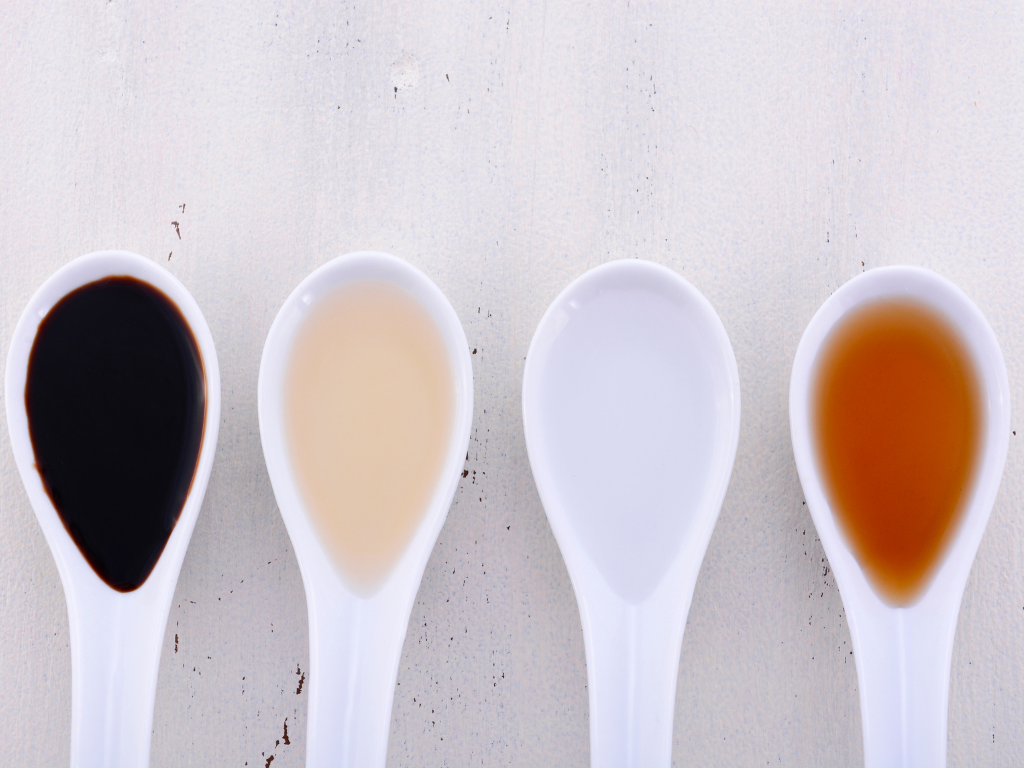
White Balsamic Vinegar: How Is It Different from Other Types of Vinegar?
White vinegar, white balsamic vinegar, white wine vinegar, what's the
difference? You may be bombarded by many options for these "similar"
products when you go to the supermarket. And it is not for less, since vinegar
is one of the essential products in every home. And yes, there are such wide
varieties and uses of vinegar. You may have some kind of vinegar in your pantry
and probably have not made the most of it.
For this reason,
today, we will talk about the most popular types of vinegar, how they are made,
and the uses you can give them. Discovering this valuable information can
expand your knowledge and open new opportunities to explore and encourage
creativity when creating recipes or giving an exciting twist to the usual
dishes.
What are the most common types of vinegar?
Like extra virgin olive oil, today, vinegar is a
real jewel due to its flexibility of
uses, especially in the field of gastronomy.
Some are considered gourmet products due to their artisanal processing,
peculiar flavor, and even some exclusive presentations. Some can be found in
all department stores, while others are only in specialized stores.
This is the case
with
white balsamic vinegar, blackberries vinegar, or other select fruits kinds of vinegar.
Just a few drops can enrich dishes and special occasions. On the other hand,
there are different types of vinegar, and their practicality makes them an
indispensable element in the home. Next, let's discuss the 5 most common kinds
of vinegar.
● White vinegar
White vinegar is a product made from acetic acid. Since its acidity becomes very intense, it is diluted with water to 10 or 5% to market. White vinegar for consumption is obtained through the fermentation of sugar cane, corn, or malt alcohol, although it can also be obtained from wine.
● Apple cider vinegar
Apple cider vinegar is obtained based on the fermentation of sugars found in apple juice. After a process of pressing, grinding, and maceration, the sugars are converted into ethyl alcohol thanks to the action of yeasts of the fruit, so it is a natural fermentation. This type of vinegar has a lower degree of acidity than white vinegar, which indicates that it has a higher pH and other beneficial qualities.
● Wine vinegar
This is an alcoholic fermentation quite easy to achieve. In reality, it is enough to leave the wine without a cork by exposing it to environmental elements such as oxygen. Through this fermentation process, microorganisms and vinegar bacteria in the environment transform simple sugars and degrade alcohol, providing acidity and other sensory characteristics of vinegar.
● Balsamic vinegar
Aged balsamic vinegar is a type of vinegar characteristic of Italian cuisine. It is made from the must of grapes cooked for an extendedperiodto reduce it to half its volume. It is characterized by having a thick consistency, dark color, and intense flavor with sweet and acidic notes. Caramel is sometimes added, although this should not exceed 2%. The minimum aging time can be 60 days, although the best is between 12 to 25 years.
● White balsamic vinegar
Among the most widely used grape varieties is Trebbiano, which is grown in a region of Modena. The procedure is remarkably similar to the classic balsamic vinegar, only that the cooking time is shorter, so it does not caramelize. Therefore, it can retain its white color and subtle flavor. Some are made with fruity aromatic notes, such as peach white balsamic vinegar .
What are the differences between these kinds of vinegar?
Now, although
all types of vinegar are a product derived from some kind of fermentation, both
its processing and its base element result in totally different elaborations.
Thanks to this, its use has diversified in ways we would never have imagined,
especially how it is consumed. Some common characteristics of all types of
vinegar are intense aroma, somewhat sourness, and robust flavor.
Here are some of
the most common uses of each type of vinegar:
Balsamic Vinegar
Both classic aged balsamic vinegar and its other varieties, such as white balsamic vinegar, belong to a type of vinegar recommended for human consumption. In ancient times some cultures used it as a medicinal topical to heal wounds. However, it has now been shown that its consumption can provide essential nutrients for health.
So, it is
currently used more as a condiment or complement in the kitchen. They are a staple in culinary art, as they also have properties that
enhance the flavor of a wide variety of dishes. They are used both to dress
salads and marinate
meats. But they can also be used for your
desserts. For example, it is usually accompanied by ice cream, cakes, or aged Parmesan cheese in Italy.
Use of wine vinegar
This type of vinegar is remarkably similar to classic aged balsamic vinegar since it traces its use to ancient times, mainly as a home remedy. It served as a disinfectant, anti-inflammatory, and even to lower blood pressure. But currently, its most common use is within the kitchen as a complementary element or dressing. It is ideal for pickling or marinating white meats such as fish or chicken. Its characteristic light flavor can enhance different dishes.
Use of white and apple cider vinegar
The high degree of acidity, mainly of white vinegar, makes it a practical disinfectant element. In many cases, its use as a cleaning product has spread since it caneffectively eliminate mold, rust, and other stains. But it is not the only use; white vinegar for consumption and apple cider vinegar can also be used as an ingredient in some preparations in cooking or remedy, although it is usually recommended not to consume it directly but diluted.
White balsamic vinegar: dare to try superior taste!
Having essential
products in your pantry, such as classic or
white balsamic vinegar, can be one of your
best allies to surprise your guests with a different touch. You probably have
used regular vinegar more than once, but why not try something new and
different? If you want to know more about these incredible products, do not
hesitate to visit our online store, you can call us at 805 238 2900 or email us
at
info@weolive.com,
and we will gladly guide you on how to obtain a balsamic vinegar of the best
quality. Also, you can use our
olive oil stores near
me
section to taste our products and enjoy delightful tastings.
